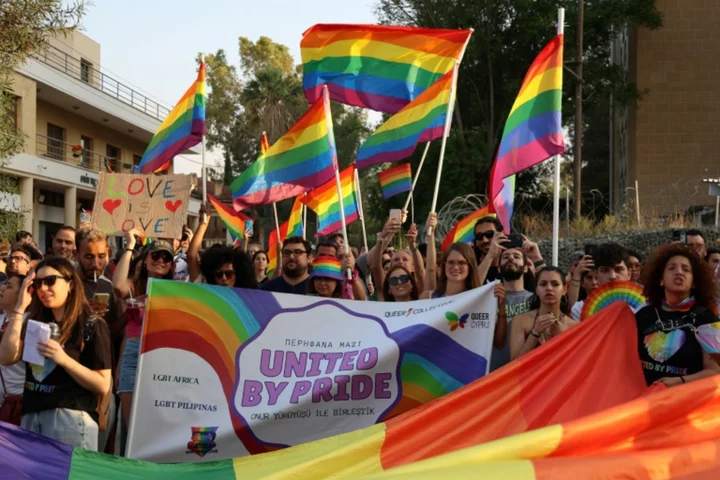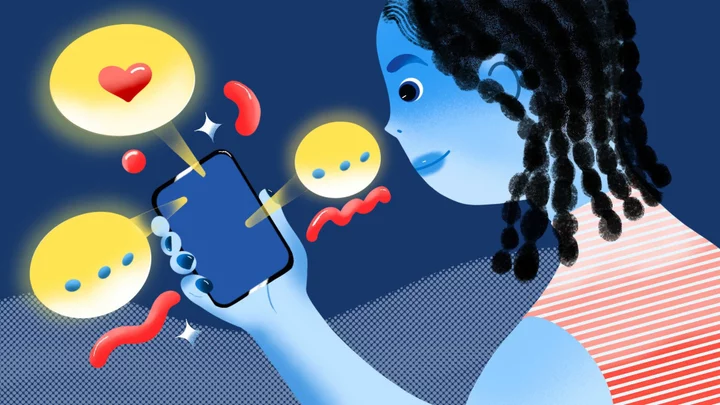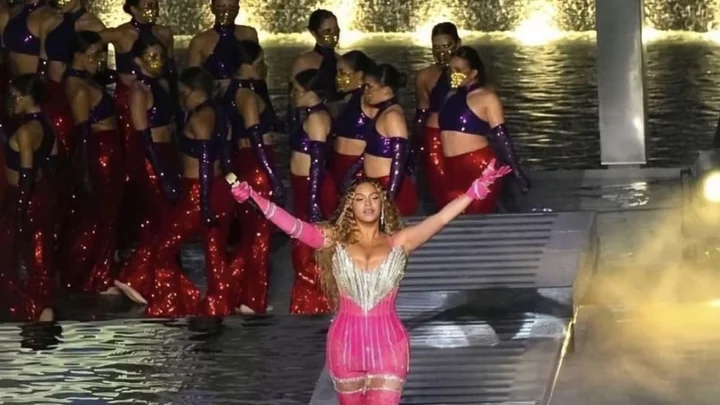Greek and Turkish Cypriots from both sides of the divided island's capital marched Saturday in support of LGBTQ rights, meeting in the UN buffer zone that has cut across Nicosia for decades.
Waving rainbow flags and chanting "united by pride across the divide" and "one queer Cyprus", dozens gathered under the watch of UN peacekeepers at the Green Line that separates the internationally recognised Republic of Cyprus from the breakaway Turkish Cypriot state in the north, an AFP correspondent reported.
"United by Pride," now in its second year, "is about... showing that we can come together and overcome adversity", said Theodore Ieronymides, 35, member of Queer Collective CY that helped organise the event.
Marchers set off at the same time from a square in south Nicosia and a park in the north no more than 1.5 kilometres (one mile) apart.
The bicommunal march can help Cypriots "join forces to bring about change", Ieronymides told AFP.
For 21-year-old Turkish Cypriot Ibrahim Ucak, "it is important because Cyprus should be united. Queer people are already united."
The small Mediterranean island has been divided since 1974 when the Turkish army invaded its northern third in response to a coup sponsored by the military junta then ruling Greece.
The Turkish Republic of Northern Cyprus (TRNC) that Turkish Cypriot leaders proclaimed in 1983 is recognised only by Ankara, and reunification efforts have been at a standstill since the last round of UN-backed talks collapsed in 2017.
LGBTQ organisations in both the Greek-speaking south and the Turkish-Cypriot north held separate Pride events last month, just over a week apart. But an inter-communal event had been "a dream" for years, said activist Erman Dolmaci, 33.
While still centred on a demand for equality and recognition, the organisers said the unique gathering has a broader message.
"It's an ongoing struggle" for groups whose "voices are not heard", Dolmaci told AFP.
Dolmaci is part of Queer Cyprus, which operates in the north and organised United by Pride alongside the south's Queer Collective CY and a coalition of LGBTQ rights groups representing migrants, students and Cypriot diaspora communities.
"We’re all the same," said 50-year-old Lisa, a two-decade Nicosia resident originally from the Philippines marching with LGBT Pilipinas, who asked not to give her full name for privacy reasons.
"We just want to express ourselves and have a safe space."
- 'Challenging the norms' -
According to Ieronymides , the "self-funded, self-organised" event can inspire queer communities in other conflict-ridden parts of the region and the world.
Dolmaci added: "As queer communities... we are challenging the norms." With the joint protest, "our movement is challenging" the established narratives of "the Cypriot problem", one of the world's longest-running disputes.
Aphrodite, a 23-year-old Cypriot drag queen who lives in Britain, told AFP that alongside a call for rights, the march "shows that as minorities from both sides of the island we have united".
"If we can unite ... why can't the wider island united? Hopefully next time we do it there won't be a border we have to cross."
EU member Cyprus decriminalised homosexuality in 1998. It permits same-sex civil unions but not marriage, and in May parliament voted to ban so-called "conversion therapy" misguidedly aimed at changing sexual orientation or gender identity.
In the TRNC, homosexuality was decriminalised in 2014.
Sonay Sevgum, 20, from north Nicosia, told AFP the parade was important though she did not believe change will come soon.
"Even if there’s no hope, we have to do it for the future and for our future queer kids," she said.
ami/kir









